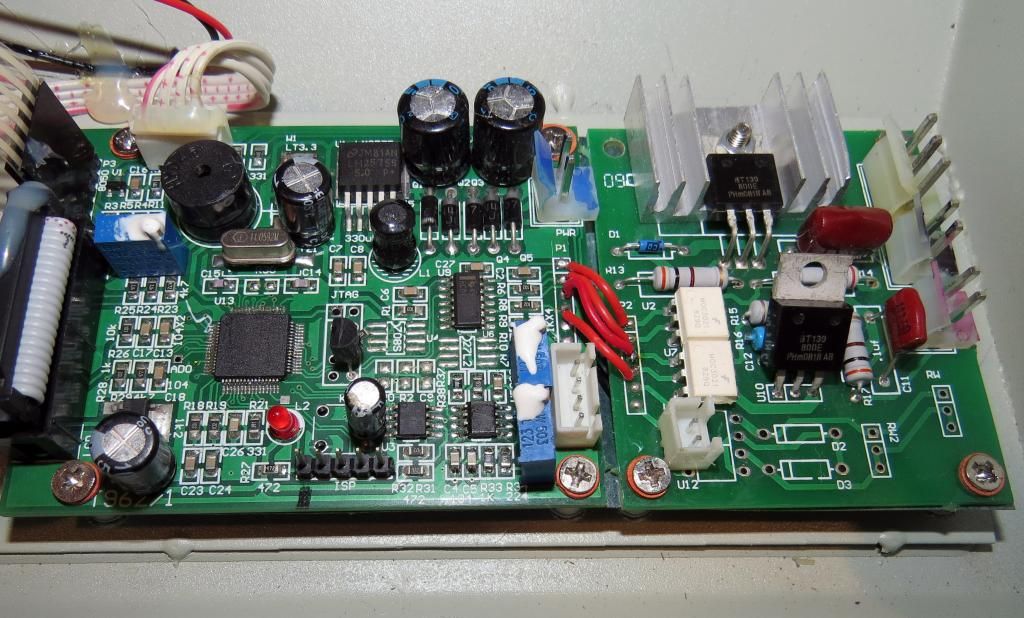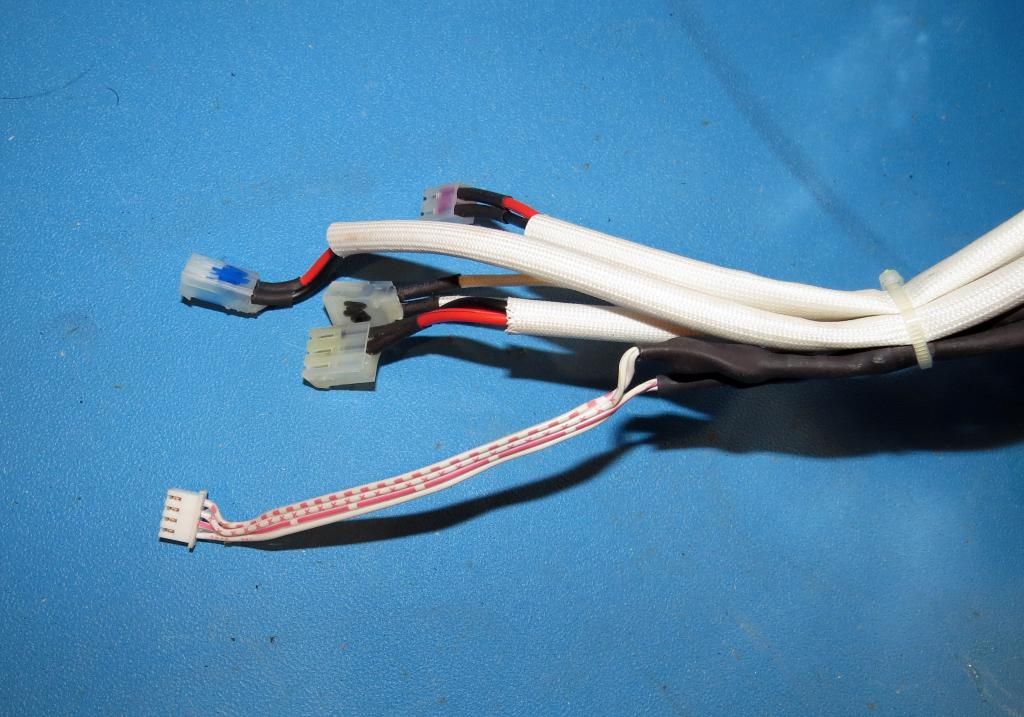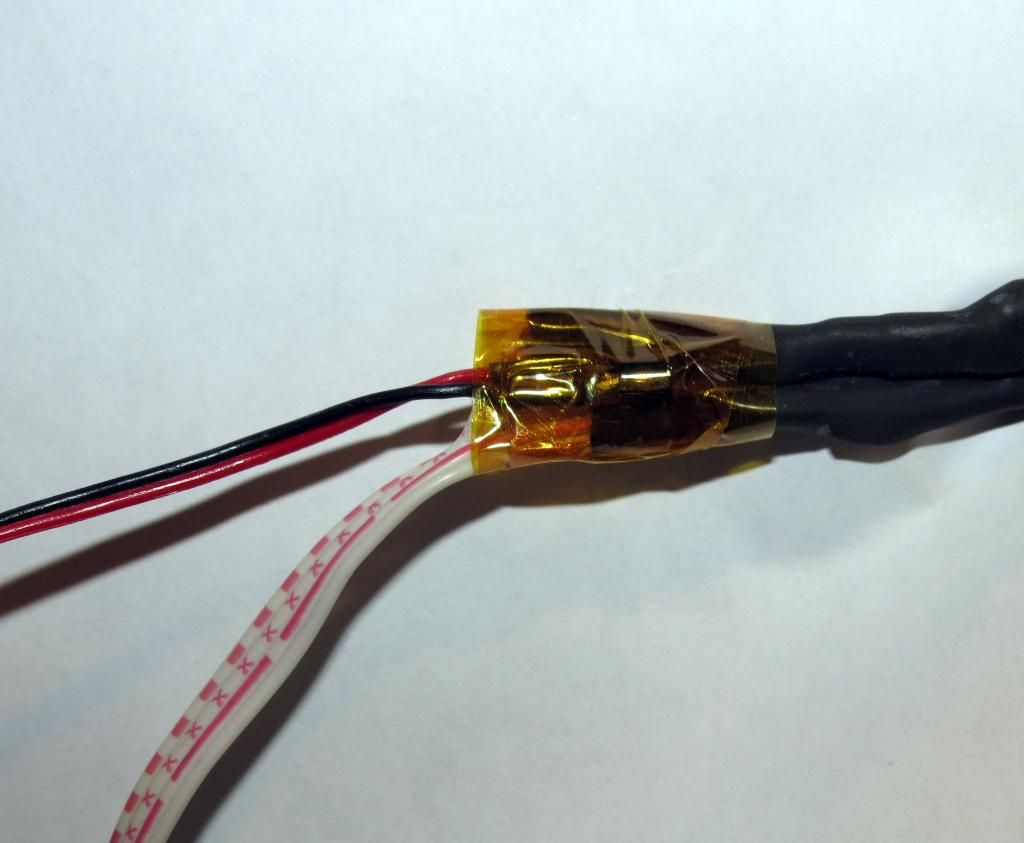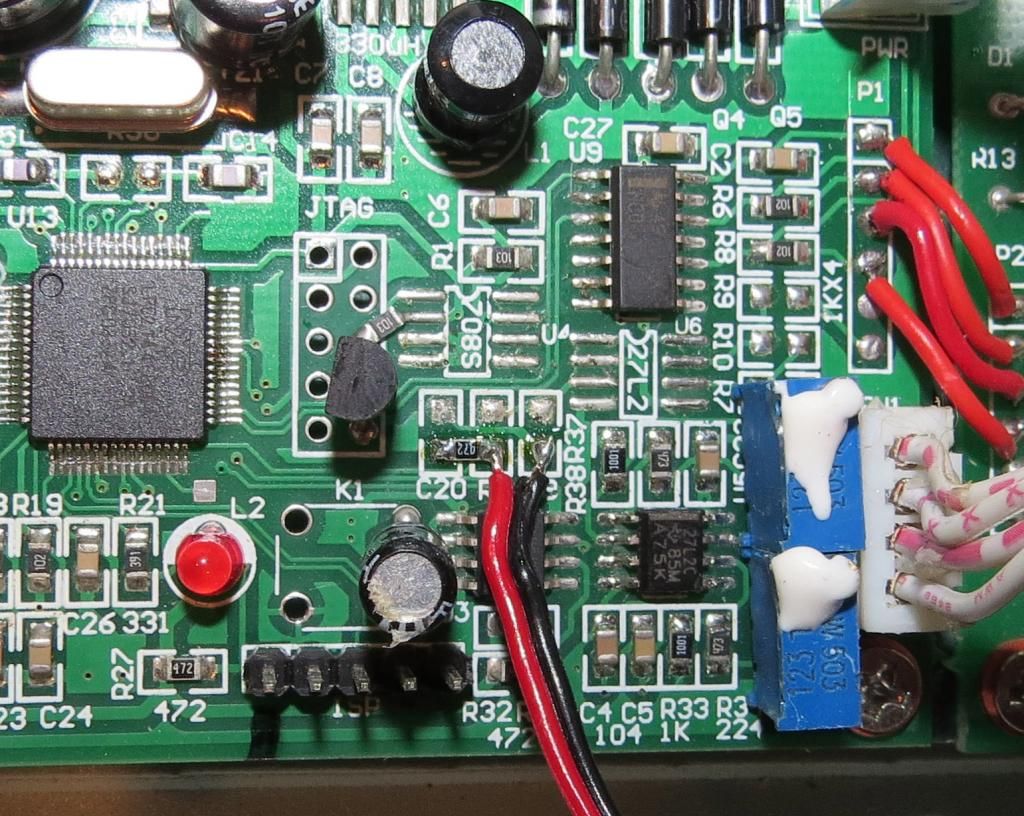-
Notifications
You must be signed in to change notification settings - Fork 195
Hardware variants
#Tested configurations: T-962 and T-962A with an LPC2134/01 MCU - OK
#Reported configurations in the field: T-962 and T-962A ovens and LPC2144 and LPC2148 MCUs
These should all be functionally equivalent to the model used during development but it would be great to get feedback on successful/failed attempts from people that are willing to try it out.
#Variant A
Production date for this unit is 09.06 (as shown on back panel).
Known differences:
- Uses LPC2144 (instead of LPC2134)
- PCB is actually two separate boards connected with wires (rather than single PCB)
- Thermocouples are spliced to copper wires that run to 4 pin connector on PCB (rather than terminal block on PCB)
- Various minor parts placement changes
View of PCB:
View of wiring harness:
Connection to thermocouple wires is under black shrink tubing.
Addition of DS18B20 sensor to wiring harness.
Sensor must be near the "cold junction" where the thermocouple wires connect to copper wires. Here the sensor is placed under tape wrapped around the junction on the thermocouple wiring.
Temperature sensor wiring to PCB. Add 4K7 resistor and wires to pads as shown. Red wire: 1-wire signal. Black wire: ground.
Note: This is only for Variant A. Units with terminal block should use directions here.
#Hardware Information - Model: T962, Date Code: T1503314

I'm not sure how to interpret the date code. Was it made in 2014 or 2015?
This unit was bought from an eBay supplier in the UK. The 'Eco-worthy' T-962 with the production date of February 2015 seems to be identical to this version.
(The nominal UK mains supply is 230 V, 50 Hz).
The processor is marked LPC2134.

The Cold Junction Compensation modification and new software work great on this hardware.
As others have reported, a quick check with a multimeter showed that the metal case was not properly connected to the mains earth conductor. A modification was made to add an earth point on the main case and another on the lid.

This appears to be a relatively dangerous bit of equipment to work on, especially because mains voltage is present on the processor PCB. We should be careful!



